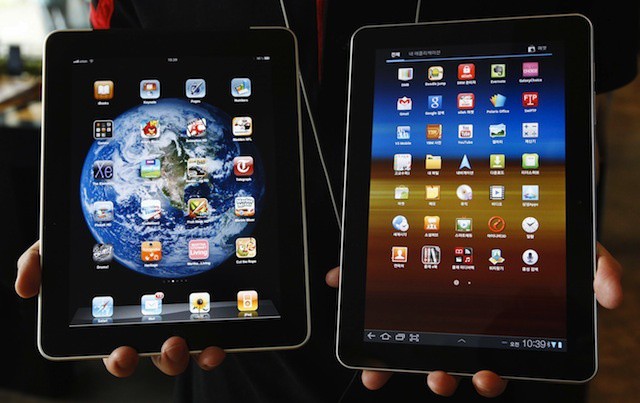Over the past two years, the Internet has been flooded with stories about the next iPad-killer. The iPad-killing hype has been applied to the Cisco Cius, Motorola Xoom, BlackBerry PlayBook, HP Touch Pad, and Galaxy Tab just to name a few. Several of these products were specifically hyped at being business tablets – alternatives to the iPad in the workplace.
At the end of the day, however, the iPad still rules the tablet space in general and the business tablet in particular. Despite being a “consumer” device, the business tablet market is really the business iPad market. The latest statistic to drive this point home is that, during the new iPad launch, Apple sold more iPads in one weekend during than one quarter of Android tablets ever sold.
Sales figures like that pose a question for IT departments – Is there a point to developing support models for Android tablets?
Last weekend’s sales figure of 3 million iPads sold is impressive, but does that translate to immediate business dominance? After all, companies weren’t likely to be sending and IT staffer to sit in line at an Apple store?
It’s too early to see the exact impact that the new iPad’s launch will have on most businesses, but even before it’s announcement, one study found that Apple commanded 96% of the business tablet market. And after the new iPad’s announcement, 84% of companies planning to buy tablets were planning to buy iPads.
From an IT purchasing perspective, it’s hard to look at those numbers along with the overall popularity of the iPad and even contemplate a large purchase of Galaxy Tabs or other Android devices. The iPad already seems ubiquitous. It’s got great consumer appeal, which means users are excited about using it on the job. It has a wide range of mobile management options, which appeal to IT needs. And there are over 200,000 iPad-specific apps. There’s even a volume purchase option, though Apple could improve on it in some ways.
All of that skews IT decision makers towards the iPad. And, for most companies, Android has yet to prove itself as a real business platform at all – due more in terms of the degree of OS version fragmentation than anything else. Android may be gaining enterprise features, but ensuring those features are on every Android device is a challenge. The entire concept of patch management largely goes out the window when it comes to Android as a result of having Google, manufacturers, and carriers vet each update. Android tablets are actually a little bit easier than Android phones in this regard. They’re largely running at least Honeycomb, which introduced some core enterprise features like device encryption, or better.
The fact is that, overall, businesses aren’t being driven to incorporate Android tablets by either technical advantages or by workers (though there is a push to support Android phones). In fact, IT’s preference for standardizing around products and product families, actually dovetails quite nicely with the idea of settling on the iPad.
There are, however, some exceptions in the form of some specialized Android devices. The biggest example is probably the Cisco Cius, which is designed around the concept of unified communications. Cisco actually made a push to customize and harden Android for the Cius and that has paid off in certain markets like some hospital and medical centers. Another example is Secure Android, a version of Android developed by the NSA for intelligence, military, and government operations.
For the moment, at least, the iPad is the top dog of business tablets and it’s hard to see Android tablets really making a dent in that market anytime soon. Windows 8 probably stand a better chance than Android could ever hope for when it comes to carving out a part of the business tablet market, though how much impact Windows 8 or Windows on ARM tablets make is still a very open question.


